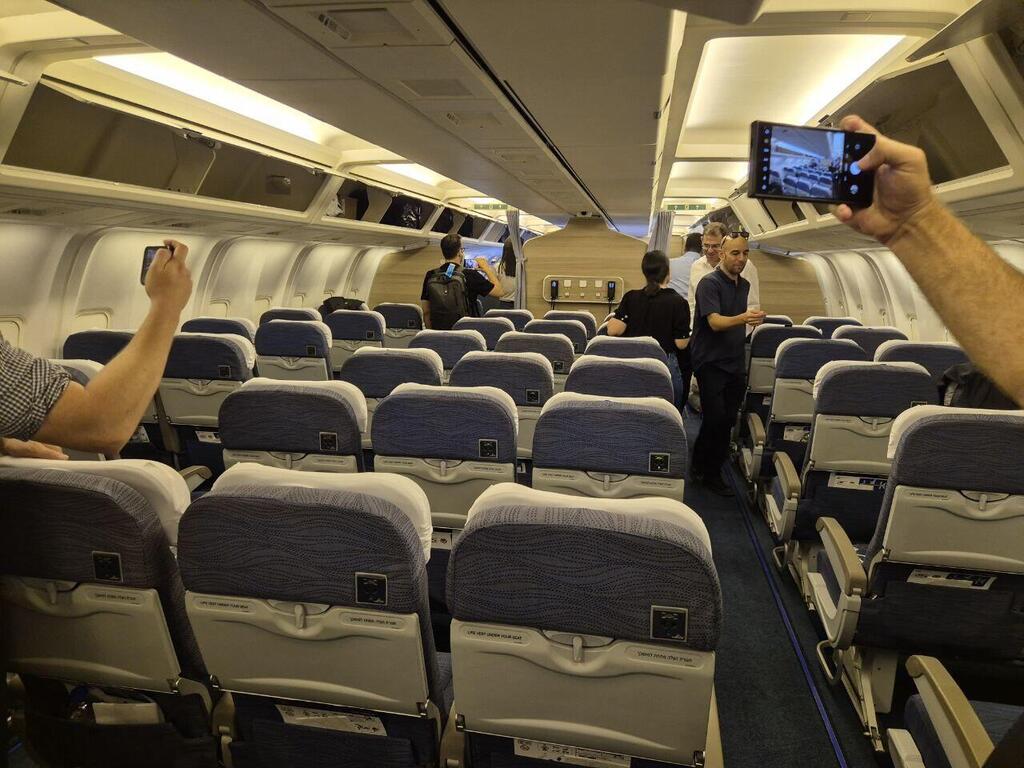Getting your Trinity Audio player ready...
Following the assassination of senior Hezbollah and Hamas officials in Beirut and Iran, several foreign airlines, including American companies, canceled flights to Israel. This trend may increase, which raises the question: what are the rights of Israelis who booked tickets with those companies?
Are passengers entitled to receive compensation if the flight is canceled?
In cases where the flight is canceled or delayed for more than eight hours, passengers are entitled to receive, according to the Aviation Services Law, financial compensation based on the flight distance. The compensation ranges from NIS 1,390 to NIS 3,340, depending on the length of the flight.
This law applies to any flight that took off or landed in Israel, including flights with a layover, and it does not matter if it is a foreign airline or domestic, whether charter, regular or low-cost flight. However, within the framework of the law, some exceptions would allow the airline to avoid paying. If the airline succeeds in proving one of the conditions for the exception, it may be exempt from paying financial compensation to passengers.
The most common exception states that if the flight was canceled due to special circumstances beyond the airline's control, and it did everything in its power to prevent its cancellation, the passengers will not be entitled to compensation. Another exception, which is relevant in this case, states that if the airline notified its passengers more than 14 days before the flight's cancellation, it is exempt from paying financial compensation for the cancellation, regardless of the reason.
What will the passengers still be able to receive?
Although the law states that in cases where the airlines have notified the passengers of the cancellation more than 14 days in advance, their right to receive financial compensation is canceled, the customer receives compensation. The airlines are still obliged to offer the passengers the right to choose between a refund and tickets for an alternative flight with as similar as possible conditions to the original flight ticket, at the earliest possible date, subject to the availability of the seats.
The passengers are entitled to choose whether to receive a refund or a ticket for an alternative flight. If the airline did not offer these options, and automatically refunded the passenger, and as a result, the passengers were forced to purchase tickets at a higher cost to their original destination, in my humble opinion, they would be entitled to a refund for the difference between the refunded flight and the new flight. If the passengers wish to receive a refund, the airline must refund them the full price they paid for the flight tickets, within 21 days from the date the passengers requested it in writing.
Do passengers deserve reimbursement for losses such as hotels or a rented car?
In these cases, a distinction must be made between expenses considered "assistance services" and other expenses. According to the law, when the flight is postponed or canceled, the airlines must provide the passengers with assistance services while waiting for the postponed or alternative flight, such as food and drink, accommodation in a hotel (if the wait for the flight involves an overnight stay), transportation services from the airport to the hotel and communication services.
It is important to note that even in cases where the flight is canceled or delayed due to circumstances beyond the control of the airlines, including due to a state of war, the airlines are still required to provide the passengers with these assistance services, and if the passengers were required to pay for these assistance services, they will be entitled to receive a refund for this.
On the other hand, in many cases, travelers order tourism services, such as hotel accommodations, car rentals, tickets to attractions, and more. In cases where the airline cancels the flight, passengers are sometimes forced to suffer financial losses such as significant cancellation fees, or nonrefundable orders.
In these cases, the airlines will not be required to reimburse the passengers for these losses, even though they were caused by the cancellation of the flight. The law states that in cases where the airlines announced the flight's cancellation more than 14 days in advance, the law exempts them from paying the passengers financial compensation.
Most verdicts on the given subject determined that these damages (for hotel/car rental/attractions, etc.) constitute indirect damages that are included in the financial compensation for the flight cancellation, as opposed to financial expenses for assistance services that the airlines are obligated to pay.
Ehud Pie is a lawyer dealing in tourism and aviation. The information provided on this website does not, and is not intended to, constitute legal advice; instead, all information, content, and materials available on this site are for general informational purposes only.




